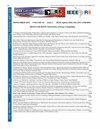用于锂电池组的事件触发式受控充电器
IF 1.3
4区 工程技术
Q3 COMPUTER SCIENCE, INFORMATION SYSTEMS
引用次数: 0
摘要
事件触发控制(Event-triggered Control)是近年来流行起来的一种基于数字控制系统的修改。这种控制算法的改变具有以下优势:减少计算时间,甚至降低对系统硬件的要求,将其处理和通信减少到最低要求;减少执行控制操作所需的计算和通信时间,使其适用于共享通信介质或同时处理多个进程的硬件环境。在这项工作中,我们比较了传统控制方案和事件触发方案在控制简单锂电池充电器电源时的不同之处。事件触发版本的电流编程控制和电压比例-积分-派生控制器的设计遵循了系统的最大允许误差(电压和电流输出纹波),结果表明这些修改是如何在最大限度减少控制环路执行的同时,获得与经典连续控制方案相当的结果,从而在不影响系统效率的情况下提高计算和通信性能。这一结果特别适用于电动汽车或便携式消费电子产品等复杂系统中无处不在的设备,可将计算时间用于其他任务,并为其他设备腾出通信通道。本文章由计算机程序翻译,如有差异,请以英文原文为准。
Event-triggered Controlled Charger for Lithium Battery Packs
Event-triggered Control is a modification for digital based control systems that has gain popularity in recent years. This alteration in control algorithms offers advantages like reductions in computation times or even in the requirements of system's hardware bay reducing its processing and communications to the minimum required; allowing for less computation and communication time needed to perform control actions and making them relevant for environments with shared communication mediums or hardware handling multiple processes simultaneously. In this work, a comparison is presented between a classic control scheme and its event triggered counterpart when controlling a Power Source for a simple Lithium Battery Charger. The event triggered versions of the current programmed control and the voltage Proportional-Integral-Derivative controllers are designed to adhere to the maximum admissible errors of the system (voltage and current output ripple) and results are presented to show how the modifications manage to obtain equivalent results to thous of their classic continuous counterparts while minimizing control loop actuation and therefore improve computation and communications performance without hindering system efficiency. This results are specially relevant for such ubiquitous devices in complex systems like electric vehicles or portable consumer electronics, allowing for computation time to be dedicated to other tasks and freeing communication channels for other devices.
求助全文
通过发布文献求助,成功后即可免费获取论文全文。
去求助
来源期刊

IEEE Latin America Transactions
COMPUTER SCIENCE, INFORMATION SYSTEMS-ENGINEERING, ELECTRICAL & ELECTRONIC
CiteScore
3.50
自引率
7.70%
发文量
192
审稿时长
3-8 weeks
期刊介绍:
IEEE Latin America Transactions (IEEE LATAM) is an interdisciplinary journal focused on the dissemination of original and quality research papers / review articles in Spanish and Portuguese of emerging topics in three main areas: Computing, Electric Energy and Electronics. Some of the sub-areas of the journal are, but not limited to: Automatic control, communications, instrumentation, artificial intelligence, power and industrial electronics, fault diagnosis and detection, transportation electrification, internet of things, electrical machines, circuits and systems, biomedicine and biomedical / haptic applications, secure communications, robotics, sensors and actuators, computer networks, smart grids, among others.
 求助内容:
求助内容: 应助结果提醒方式:
应助结果提醒方式:


